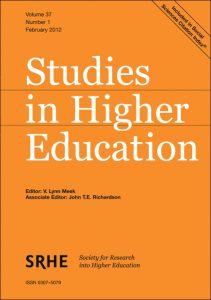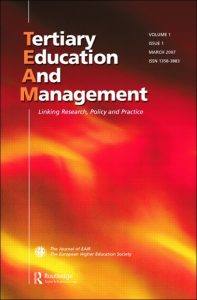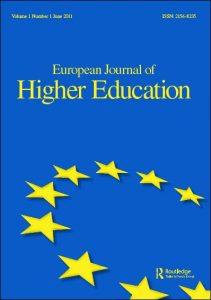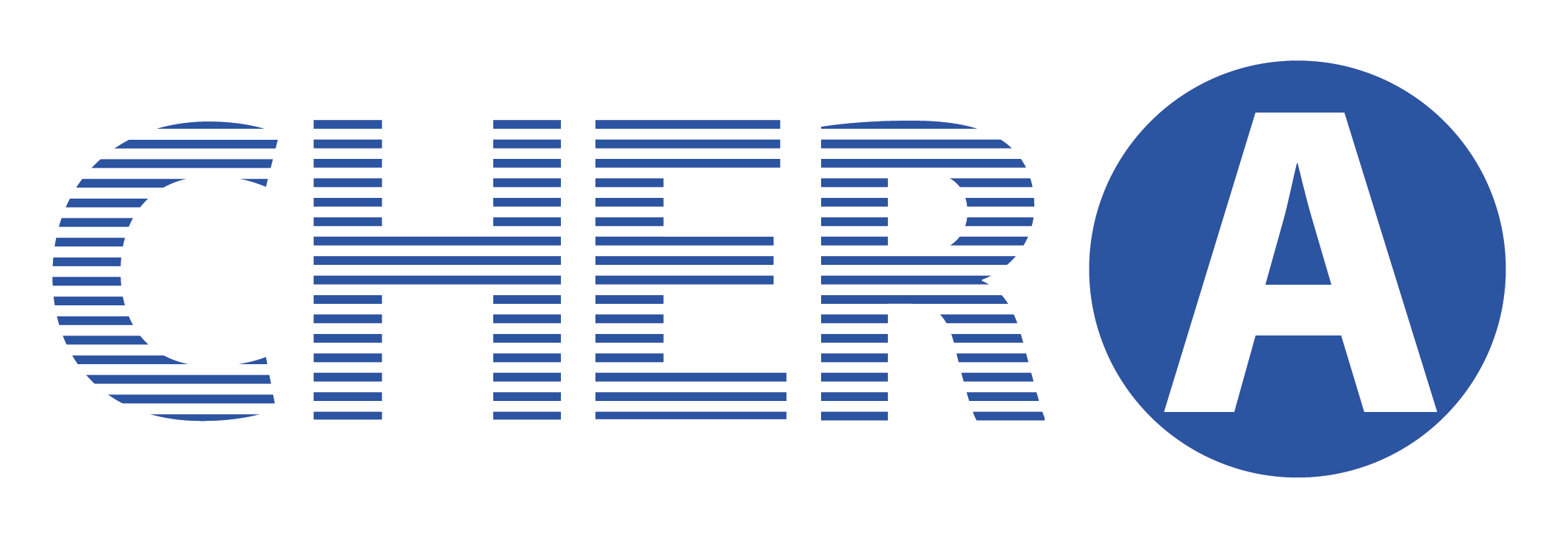 Horta, H., Cattaneo, M., Meoli, M. (2018). PhD funding as a determinant of PhD and career research performance. Studies in Higher Education, 43(3): 542-570.
Horta, H., Cattaneo, M., Meoli, M. (2018). PhD funding as a determinant of PhD and career research performance. Studies in Higher Education, 43(3): 542-570.
This article focuses on the effects of PhD funding on research performance both during the degree and throughout researchers’ careers as measured through publications and citations. This analysis draws from a representative sample of researchers holding a doctorate based in Portugal and finds that those funded by grants during the PhD perform better than the self-funded ones. It also finds that different PhD funding sources produce different outcomes. PhD grants positively affect research performance during the PhD and throughout the career, when compared with research project grants. We argue that the latter funding scheme has more limited effects because of the constraints typical of early stage researchers involved in research project dynamics.
 Patrício, M.T., Santos, P., Loureiro, P.M., Horta, H. (2018). Faculty-exchange programs promoting change: motivations, experiences, and influence of participants in the Carnegie Mellon University-Portugal Faculty Exchange Program. Tertiary Education and Management, 24(1): 1-18.
Patrício, M.T., Santos, P., Loureiro, P.M., Horta, H. (2018). Faculty-exchange programs promoting change: motivations, experiences, and influence of participants in the Carnegie Mellon University-Portugal Faculty Exchange Program. Tertiary Education and Management, 24(1): 1-18.
The international mobility of faculty is increasing worldwide. Although studies have considered the experiences of academics abroad, less is known about faculty-exchange programs with policy objectives. This study helps to fill this gap by analyzing a nationwide structured faculty exchange program established by Carnegie Mellon University and Portuguese universities to bring change to Portuguese higher education. The findings are based on interviews with Portuguese program participants, whose motivation to participate and experiences with the program, in addition to the influence of their experience abroad on their home institution, were explored. We find that, although the alignment of individual motivations with institutional interests is important to such programs, the complex transposition of individual experiences to the institutional level may be impeded by cultural resistance as well as resource and organizational constraints. Our exploration of the features that determine the success or failure of these experiences provides insights for policymakers seeking to implement faculty-mobility programs in the future.
 Cattaneo, M., Horta, H., Malighetti, P., Meoli, M., and Paleari, S. (2017). Effects of the financial crisis on university choice by gender. Higher Education, 74(5): 775-798.
Cattaneo, M., Horta, H., Malighetti, P., Meoli, M., and Paleari, S. (2017). Effects of the financial crisis on university choice by gender. Higher Education, 74(5): 775-798.
This study analyses the university choices of male and female students in Italy over the 2003–2012 period and for two sub-periods before (2003–2008) and after (2009–2012) the 2008 financial crisis. The analysis is guided by human capital, signalling and preference theories and implemented through a competing destinations model that controls for the socio-economic features of both the region of origin and destination. The findings show that in the post-crisis period, males became more career-oriented in their university choices due to increasingly constrained and competitive labour markets. The constrained post-crisis labour markets led females to focus more on the educational experience than on future employability prospects. Our results suggest that the financial crisis maintained or even widened gendered social roles as they relate to university choices; specifically, males assumed an even greater career-centred family role, whereas females adopted more adaptive lifestyles that potentially place them at a disadvantage in the labour market and in society in years to come.
 Hasanefendic, S., Birkholz, J., Horta, H., and van der Sijde, P. (2017). Individuals in action: Bringing about innovation in higher education. European Journal of Higher Education, 7(2): 101-119.
Hasanefendic, S., Birkholz, J., Horta, H., and van der Sijde, P. (2017). Individuals in action: Bringing about innovation in higher education. European Journal of Higher Education, 7(2): 101-119.
This article addresses academics who innovate in higher education and their characteristics. We undertake a qualitative case study of six individuals who implemented disruptive and transformative pedagogical approaches and curricular practices in their departments and/or at their institutions. Our findings point to six common characteristics – motivation to change institutionalized practices, interest in change, experience in the field, multi-embeddedness, authority to act, and the strategic use of social networks – which seem to play a role at individual levels in driving these disruptive and transformative approaches. While acknowledging studies in higher education that address innovation as a response to exogenous influences, this study highlights the role of individuals with certain characteristics in driving innovation and processes of endogenous change in higher education institutions. These findings are also relevant for higher education practitioners in their desire to foster innovative initiatives in institutional settings.
